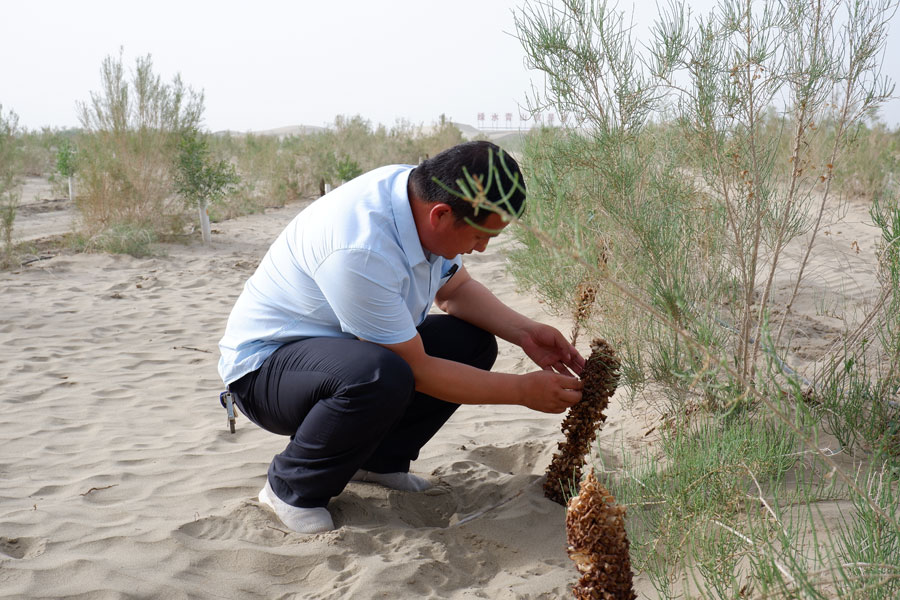Tree-planting reduces sandstorms in Kashgar


According to local meteorological authorities, rainfall has doubled over the last decade to 100 millimeters in the last year. Sandstorm days, meanwhile, have dropped to 50 days a year, only one third of the level 10 years ago.
The benefits are more than ecological in the county, which is home to almost 50,000 impoverished people at present.
Local government has engaged more than 80 needy families in the preservation effort, irrigating saplings overnight and fencing them with wires to protect from animals.
The job brings up to 60,000 yuan ($8,684) to poor households annually, which easily lifts the average pay of family members higher than the poverty line, about 3,000 yuan a year in the region, Wang said.
To magnify financial benefits, his team experimented with the cistanche tubulosa in the woods since 2016. The parasite, which has high added value for its wide usage in Chinese medicine and cuisines, obtains nutrients and water from the saxaul. It is ready for sale after 18 months of growth.
"It has proved a successful undertaking and has injected momentum to poverty relief efforts," Wang said.
He added the team is exploring other ways to extract financial rewards from improved ecology, such as developing organic farming under the shade of saxaul.
The success in Makit was not the only one in the southern part of Xinjiang, where raging sandstorms have hampered local development for centuries.
Yecheng county, further south in Kashgar, has worked since 2015 to afforest barren lands with ecological and economic goals in mind. Local authorities have encircled large swaths of desert with belts of poplar, and drought-resistant plants were also used to improve soil in encircled areas.
Then it leased the land at a low price to an agricultural company, which grows cash crops such as goji berries, apple trees and forage grass. The company's operations in turn provided job opportunities for the poor households.
Lin Guoyin, deputy-director of Yecheng's agricultural bureau, said better ecology matters for local development and poverty relief.
"Better ecology is usually followed by rich agricultural output, then by development in the manufacturing sector, and in time by tourism, which could boost income for local residents," he said.
- Norway's seafood exports hit record in 2025, China emerges as top three market
- Crucial tower of Shenzhen-Jiangmen Railway completed, marking significant milestone
- Hangzhou selected as a 'Zero-Waste Cities' by the UN
- China backs Tanzania's plan to double exports by 2030
- China leads renewable energy jobs growth as Africa seeks green partners
- Jilin—1 GF07 satellite transmits high-resolution photo of Harbin's winter wonderland




































